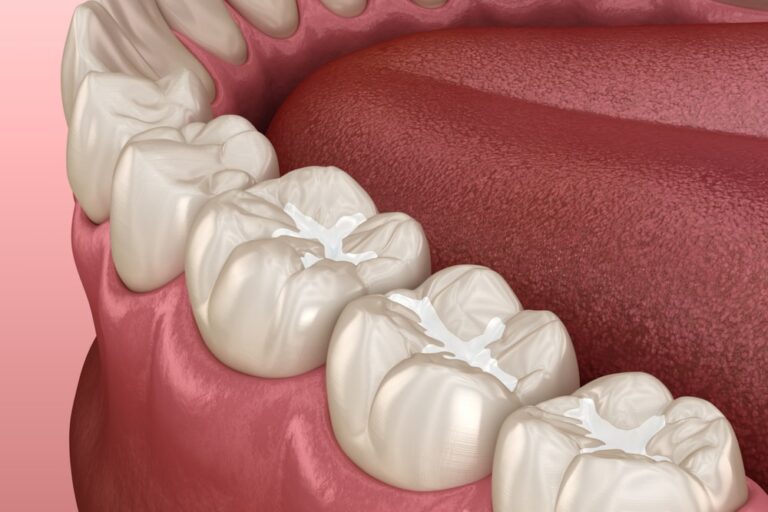Your smile is more powerful than you may realize. It communicates warmth, fosters connection, and boosts your confidence. But did you know your smile is deeply connected to your mental health? Science shows that the state of your teeth and gums plays a critical role in how you feel emotionally. A healthy smile doesn’t just help you look good—it can make you genuinely happier and more comfortable in your skin.
This blog will uncover the fascinating link between oral health and mood, explore how smiling affects your mental well-being, and offer actionable tips to help you maintain a confident, radiant smile.

The Science Behind Smiling and Mental Health
How Smiling Affects Your Brain
Smiling is more than just an outward expression of joy. When you smile, your brain releases feel-good chemicals like dopamine, serotonin, and endorphins. These chemicals are natural mood boosters, helping to reduce feelings of stress and anxiety. Even a fake smile can trick your brain into releasing these same chemicals, creating a positive feedback loop between your facial muscles and emotional state.
This is known as the “feedback hypothesis.” Studies have shown that forcing a smile during a challenging situation can improve your mood and lower cortisol levels, the hormone responsible for stress.
Confidence and Self-Image
Your teeth are a critical component of your smile, and their condition can heavily influence how confident you feel. People with straight, white, and healthy teeth tend to smile more often, exuding a sense of self-assurance. On the other hand, concerns like cavities, discoloration, or alignment issues might cause you to hide your smile and avoid social interactions.
When you smile more frequently, others perceive you as approachable and friendly, which can lead to stronger relationships and higher self-esteem. It’s not just about appearance; it’s about how these small acts of connection enhance your emotional health.
Oral Health and Its Link to Mental Well-Being
The Emotional Toll of Poor Oral Health
Oral health issues like tooth loss, gum disease, or chronic bad breath can do more than harm your physical health—they can significantly impact your mental health too. Conditions like these often lead to embarrassment, social withdrawal, or even depression in some cases.
For example, people with missing teeth may avoid smiling in photos or participating in conversations at work or social gatherings. Over time, this pattern of behavior can take a toll on their confidence and exacerbate feelings of loneliness or low self-worth.
Stress and Oral Health
The relationship between stress and oral health is a two-way street. High stress or anxiety can cause habits like grinding your teeth (bruxism) or neglecting oral hygiene routines, both of which can lead to dental complications. Conversely, dealing with ongoing dental pain or problems can increase stress levels, further creating a cycle that’s hard to break.
The Benefits of a Healthy Smile
Improved Mood and Happiness
A healthy smile isn’t just an aesthetic asset—it’s a tool for greater happiness. Feeling good about your teeth and smile encourages you to show it off more, which can increase your overall sense of well-being. Smiling triggers the release of the aforementioned “happiness hormones,” creating a positive feedback loop that sustains your mood.
Studies have even found that smiling frequently can help combat mild depression. Engaging in positive facial expressions, even when you don’t feel happy, might make you feel better over time, thanks to those instantaneous brain-chemical reactions.
Better Social Interactions
When you smile confidently, it shows! A bright, healthy smile can help break down barriers, encourage conversation, and make you seem more approachable. Whether on a first date, during a job interview, or simply in casual interactions, your smile plays a vital role in forming connections and leaving lasting impressions.
A Gateway to Good Health
Beyond mental health, maintaining good oral hygiene has benefits that extend to your physical health. Research shows a link between gum health and reduced risks of heart disease, diabetes, and other chronic illnesses. Knowing your oral health contributes to your overall well-being can give you peace of mind and more confidence in your general health.
How to Cultivate a Healthy, Radiant Smile
Regular Dental Checkups
Visiting your dentist every six months is a must for keeping your mouth in tip-top shape. During visits, your dentist not only cleans your teeth but also checks for early signs of problems like gum disease or cavities. By addressing these issues early, you can prevent them from escalating and causing distress.
Brush and Floss Properly
Good oral care begins at home. Brushing twice a day with fluoride toothpaste and flossing daily removes plaque and prevents bacterial buildup, which can contribute to bad breath and gum disease.
Make it a habit to brush for at least two minutes, covering every surface of your teeth. If standard dental floss feels cumbersome, try using floss picks or water flossers to make the process more enjoyable.
Eat a Smile-Friendly Diet
What you eat plays a significant role in your oral health. Foods rich in calcium, like milk and yogurt, help strengthen your teeth, while crunchy fruits and vegetables like apples and carrots act as natural cleansers for your teeth. Avoid sugary drinks and sticky snacks that can linger in your mouth, offering bacteria a feeding ground.
Address Cosmetic Concerns
If you’re self-conscious about the appearance of your smile, modern cosmetic dentistry offers several solutions. Teeth whitening, veneers, and Invisalign treatments can help you achieve the smile you’ve always wanted. Talk to your dentist about your concerns so they can recommend the best treatment options for you.
Manage Stress
Stress management is often overlooked in oral health but can make a significant difference. Activities like yoga, meditation, and regular exercise help reduce stress hormones and prevent harmful habits like teeth grinding.
If bruxism is already an issue for you, your dentist may recommend a custom night guard to protect your teeth while you sleep.
Transforming Smiles in West El Paso
At West El Paso Dentist, we understand that your smile is deeply personal and has a powerful impact on your mood and self-esteem. That’s why we’re committed to providing comprehensive care in a friendly, welcoming environment. Whether you need routine dental cleaning, cosmetic treatments, or restorative solutions, our team is here to keep your smile healthy and your confidence high.
Don’t underestimate the role your teeth play in your mental and emotional well-being. If you’ve been putting off dental care or feeling self-conscious about your smile, now is the time to take action. After all, when you prioritize oral health, you’re not just investing in your teeth—you’re investing in your happiness.
Take the First Step Toward a Happier You
Maintaining a healthy smile isn’t just about protecting your teeth; it’s about improving your quality of life. Smiling more, feeling confident, and radiating happiness are all benefits of taking care of your oral health.
Schedule an appointment at West El Paso Dentist today to kick-start your smile transformation. Call us at (915) 285-0613 or book online. Together, we’ll help you achieve a smile that makes you feel fantastic inside and out.






